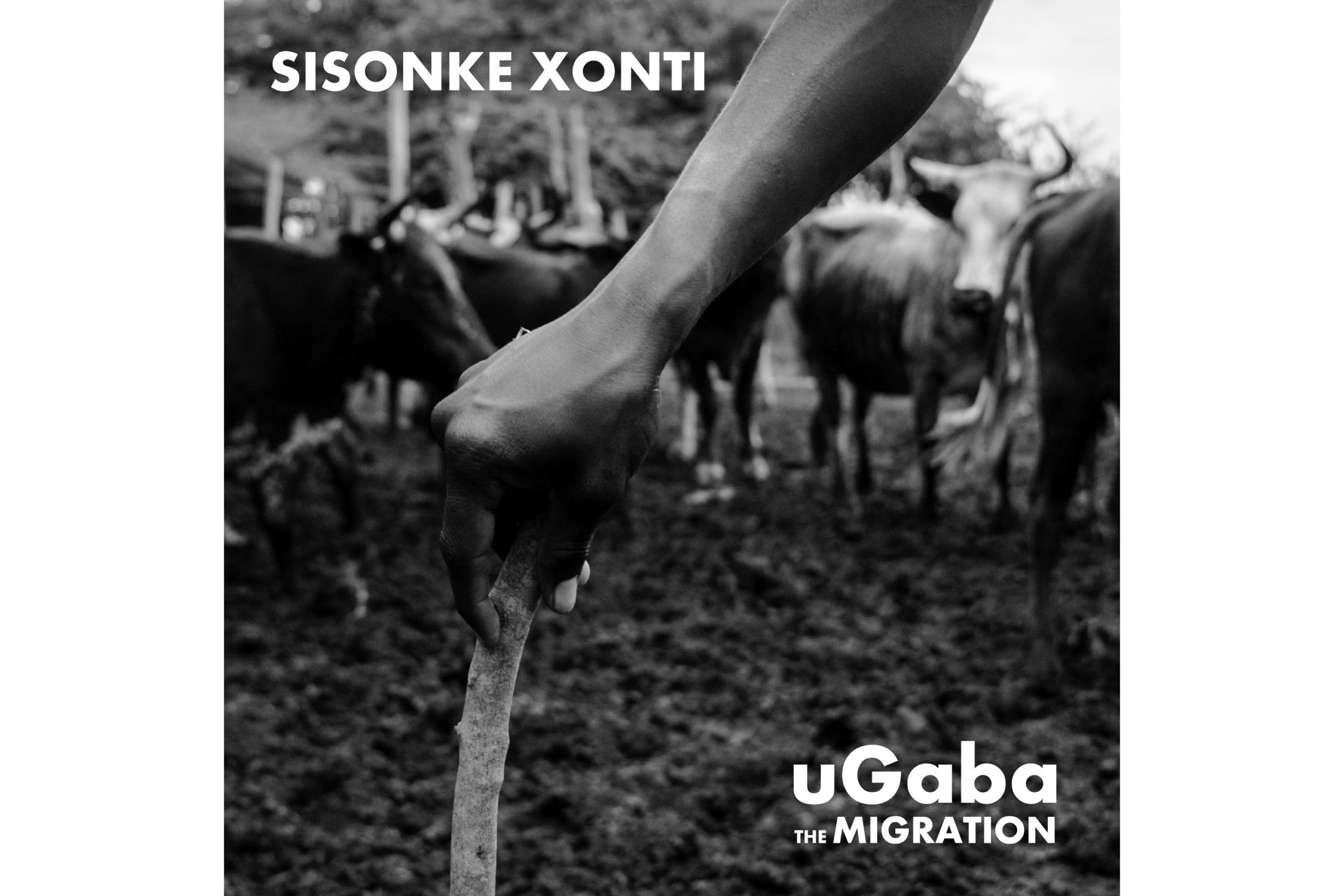NEW FRAME
Home is where the music is for Sisonke Xonti

The saxophonist’s second album as leader maps his jazz journey to a greater awareness of the world and his place in it.
This story was first published in New Frame
The teenage musician is disconsolate. His horn is broken and he needs to practise over the weekend. “Don’t worry,” says the instrument repairer. “I’ve got one in that I’ve fixed and it’s not going to be collected till Monday. If you’re very careful, you can borrow it. But don’t tell anybody…
“And that’s how,” says reedman Sisonke Xonti, “for a whole weekend, I got to play Winston Mankunku’s horn. I never met him, but I’ve played his horn…” Xonti’s second album, uGaba: The Migration, launches in Cape Town on 13 November.
It’s on second albums, by convention, that careers are established. A debut recording is often a showcase for everything a musician can do. Their next release is expected to be a much tighter statement, one that says this is who I am. And uGaba is certainly that.

Album cover uGaba, The Migration. Image supplied
Xonti’s debut, Iyonde, appeared in 2017. Unlike many debuts, it established an immediately coherent character, one dominated by quietly lyrical compositions and solidly in the jazz tradition that Mankunku epitomised.
That elder statesman of the music was a presence around Xonti’s playing from the start. Xonti grew up in Khayelitsha, began clarinet lessons at the age of 10 and started playing classical saxophone at 13. “But my father used to play Mankunku records all the time. When I got hold of a saxophone, I immediately made the connection: this is the sound I’ve been hearing.”
In his mid-teens, Xonti joined the Little Giants, the grassroots youth jazz project established in 1999 by musicians Ezra Ngcukana and George Werner. Xonti had heard them at a school event and nagged his father relentlessly for an introduction. As he got deeper into jazz, he discovered John Coltrane, another of his horn heroes today. “I loved Coltrane’s music. But I got fascinated by Mankunku. I used to play along with his solos all the time. I didn’t realise that what I was actually doing was transcribing.
“And when I was doing that – it’s hard to explain – I used to get highly emotional. It was almost like he was with me as if he was holding the saxophone and I was just playing it.”
More than a hobby
All that rigorous practice – a habit he retains – led to eventual selection for the National Youth Jazz Band at the Standard Bank Jazz Festival in Makhanda. Still, at that time, he saw the music he loved as a hobby. He intended to study law.
His protective parents, though, were reluctant to let him loose with unreliable companions at a distant university, and after some indecision and discussions with Werner, he auditioned for the music programme at the University of Cape Town. After a year, still unconvinced that music could be anything more than an enjoyable side hustle, he switched to law.
But in his final year, as he told the allaboutjazz website, “we had to go to court to watch over cases. Watching the lawyers, I remember thinking, ‘Man, this guy looks sad. And that guy looks very sad.’ I had this epiphany that 40 years down the line, that would be me. I didn’t want to be that person, and I realised that music was what made me happy.”
Xonti moved to Johannesburg in 2013, gained gigging experience everywhere he could, and began leading his own small groups. That’s how Iyonde was born. But the Xonti who made Iyonde, he says, was not who he is today. That transition is what uGaba maps.
The value of roots
The change wasn’t in his sound, but rather in what he chooses to say with it. Gaba is Xonti’s clan name, and his “migration” has been towards becoming more aware of the value of roots, and of his place in the world. “I didn’t grow up privileged, but I was highly protected, sticking to my studies, and I lost out on a lot of information about what was happening around me.
“Around 2017-2018, I was travelling, started reading a lot more, watching the news… and I got really scared that I hadn’t been aware of so much. I was no different from a migrant worker 100 years ago, moving across the country, seeking a better life. Only you find out that it isn’t better. There’s more strife, less love. And home is really where the love is.”
That’s summed up in the four-movement Migration Suite that forms the core of the new album’s nine tracks, with music that travels from traditional to urban sounds, from edgy abstraction to swing and eventually through chaotic dissonance towards the gentle melodic resolution of its final theme, Rubedo. A poem by Tebo Moleko underlines the multiple levels of the journey and its dilemmas – personal, historical, national – “Should I go home or remain?”

28 October 2019: Sisonke Xonti. Photograph by Creative Emporium (Pty)Ltd
Xonti is reluctant to restrict his music with a political label. “I just try to be honest about what I’m feeling at the time and convey that in my music.” But his awareness of current issues is reflected in the tracks. The opener, Minneapolis, was originally sparked by the Central Park Five documentary, When They See Us but became a searing lament for George Floyd and Black Lives Matter. “I didn’t need to think too hard about it. It just really touched me emotionally.”
Another track, the rollicking, Jazz Ministers-style Nomalungelo, is also a reflection of where Xonti has come from as well as what he’s thinking about now. It’s a homage to the township jazz repertoire of the Little Giants: “That’s where I started, those groovy melodies.
“But the lyrics – ‘Please Nomalungelo, give us money so we can go and drink’ – have another meaning, too. It’s also to our leaders. We’ve put them into power and now they’re enjoying their drinking alone behind high walls, not thinking about us.” To counterbalance, there’s also an uplifting song of hope, The Call, from vocalist Keorapetse Koloane.
Interesting spaces
uGaba stays faithful to Xonti’s trademark combination of catchy tunes and improvisatory risk. “I really try to have simple, memorable melodies. But when I work on the harmonies, I try to do something more complex, so that on stage the guys have something really interesting to improvise on. I’ve got a very strict practice regimen. When I lose that and start having fun jamming, that’s when a melody comes to me. Then I take it to the piano and think about what I can add with the chords.”
On the album, the group takes full advantage of those interesting spaces. Co-producer, pianist and vocalist Yonela Mnana, bassist Benjamin Jephta, main trumpet Sakhile Simani and guest trumpet Lwanda Gogwana are all people Xonti has known or worked with for nearly or more than a decade.
Xonti calls Gogwana “big brother”, and says that when he was composing the trumpet parts, “it was Sakhile’s voice I heard.”
The rhythm crew – Jephta, drummer Siphelelo Mazibuko and percussion maestro Tlale Makhene – he sees as a vital propulsive engine for “pushing the band to explore. As much as you rehearse, live, you take a different direction. Besides, Siphelelo also brings us lightness. Jazzmen on stage can sometimes look very serious, and he has this smile…
“It’s important,” Xonti reflects, “to have good relationships with the people you play with.” Because that, too, is another kind of home. DM/ ML
















 Become an Insider
Become an Insider
Comments - Please login in order to comment.